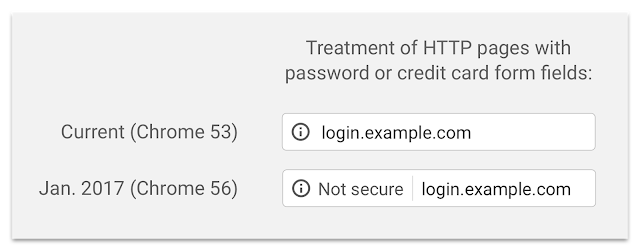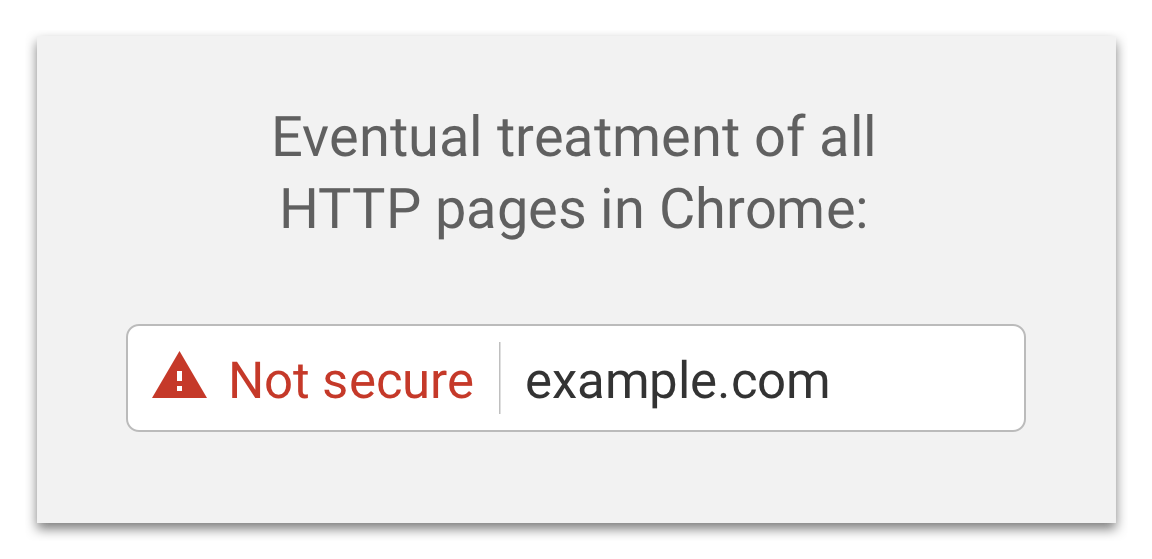Secured vs Unsecured
This is an oversimplification, but to get us started. If your site has HTTPS in front of your URL, then your website has an SSL/TSL certificate and the traffic between your server and the end-users browser is encrypted. If your address starts with HTTP, then it is not. Here is a much more exhaustive explanation of what an SSL is and why you need one.
Google Chrome and other browsers have started to warn users that the sites they are visiting are not secure. If your end-user (or yourself) transmits sensitive or private data between their computer and your server, that data can be grabbed by anyone between them and the server and stolen. The information will not be encrypted and can be read by whoever is intercepting that information.
This all sounds scary and it kind of is. Chances are you are not trying to get your customers identity stolen. You are probably just trying to take online orders for cakes, cards, or widgets of some kind. However, by asking for the data, you should know the risks and how to keep your customers safe.
Security is Important to Google
Now, why does that matter to you? (beyond the risks to your customers)
Google started “shaming” sites that do not use Encryption. The browser will call you out and give the user an explanation of what about your site is insecure. Whether it’s mixed content (a mixture of Secure and Insecure content) or you are missing an SSL altogether.
Motherboard has a great article on the coming “shaming” from Google and what it means for you.
Google made this announcement back in September 2016. You can read that here. There is a lot to digest in both of these articles, but if you have nothing better to do or you need something to put you to sleep they are great reading.

While above is the current examples of the treatment of HTTP pages with passwords or credit card form fields, and below is where they are moving to. As you can see your customers will know when their information is at risk. All the more reason to install an SSL and secure your site.

SSL Now Affects SEO
Ever since this announcement, encrypted sites have been gaining an edge over their nonencrypted competitors. Neil Patel explains SSL and it’s implications for your site and traffic here.
If you had any doubts about securing your site those will be gone after reading Neils post. You don’t want all your hard work and money to go out the window. You need your efforts to be seen by search engines as safe so they can get in front of your audience.
We will go over installing an SSL in another post. Installing a certificate is not as simple as turning on a switch on your website. There are things to consider. Do you have a multisite network with subdomains were a wildcard certificate is required? What level of security do you need?
Need help making the transition? Not sure where to start? We would be happy to discuss your options with you. Just leave a comment below or reach out to us.
Have you already made the transition to a secure site? What issues did you encounter?
Update:
PixelPrivacy is a great company who wrote a guide on SSL and HTTPS. They have awesome guides for all types of web related security. Check out their guides and let them know what you think.




